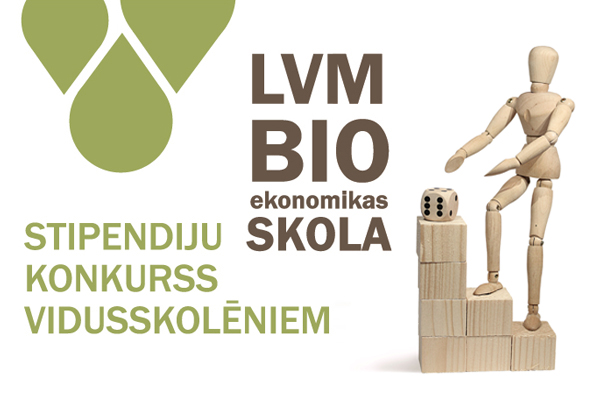LVM Bio-economy School Incites Secondary School Students to Apply for This Year’s Scholarships
How can nature and economy help each other? Can our future be built on a wiser use of natural resources? What does "bio-economy" mean? LVM Bio-economy School discusses these issues with secondary school students from all over Latvia. In the first round which is to end on 31 January, students have a task to create a poster on this topic. In February, the authors of the best works will head for the Bio-economic Expedition to create a special message for the UN International Day of Forests.
Already for the second year, JSC "Latvia's State Forests" (LVM) in cooperation with the association "Zaļās mājas" and the National Centre for Education arranges the scholarship contest "LVM Bio-economy School". The competition aims at raising awareness of the growing role of forest resources in addressing environmental problems. Ketija Pujāte representing Aizpute Secondary School won the last year's competition - she had made a video titled "A tree is the core of a Latvian. A forest is the future of Latvia."
Just like last year, also this year's competition is arranged in three rounds. In the first round of the competition, school students have to create a poster titled "What is Bio-economy?". Once the posters are ready, guided by industry experts, the students will have an opportunity to expand their horizons by going on a day expedition (on 23 February) to the forests managed by LVM and factories of JSC "Latvijas Finieris". The acquired knowledge and new impressions will be useful in creating a short video message for the UN International Day of Forests, which will have a crucial role in awarding the LVM Bio-economy School scholarship.
Bio-economy is based on three basic principles of sustainable development: nature, economy and society, and represents the transition from fossil to renewable resources. It involves the circulation of closed-loop products, where a waste product of one process is a raw material of the next process. Bio-economy opens up opportunities for the development of the Latvian economy, based on its strongest sectors - forestry and agriculture.
Kristaps Ceplis, Head of the Society "Zaļās mājas": "Wood and other biological products have a high potential for increasing the added value of products, replacing fossil fuels in energy production, developing future biological products and reducing greenhouse gas emissions. We hope that the scholarship competition on this topic will encourage young people to acquire new knowledge and apply it in practice, thus making this world a better place."
The Terms of Reference and additional information about the contest are available on the website: www.lvm.lv/bioekonomika



